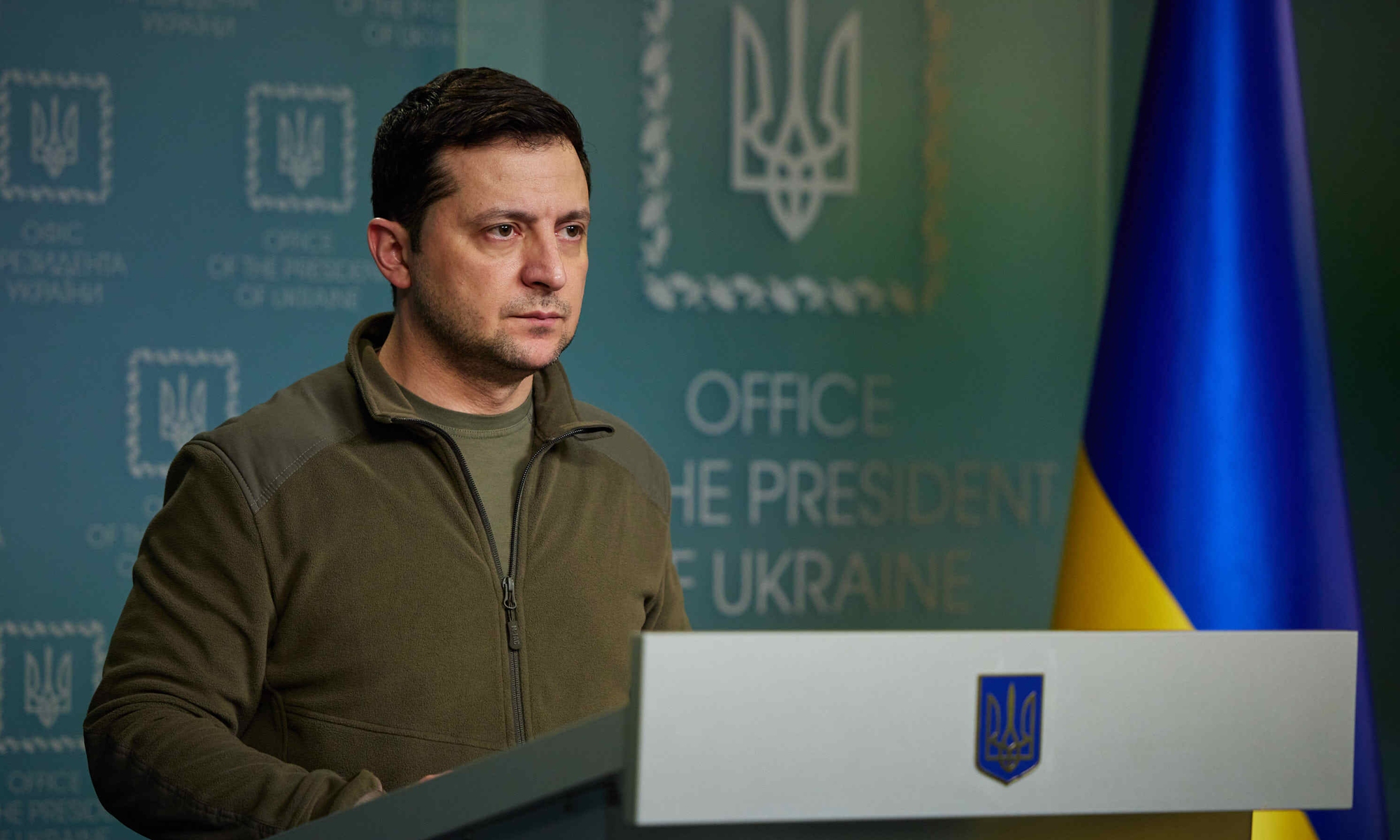
Ukrainian President Volodymyr Zelensky Photo:VCG
President Volodymyr Zelensky said that talks between Ukraine and Russia will continue despite the evidence of "atrocities carried out by the Russian military," the Ukrinform news agency reported on Wednesday.
"In any case, we must find even small opportunities for the negotiation process. Without this, I think it is difficult to end the war," Zelensky was quoted as saying in an interview with Turkey's Haberturk television channel.
Zelensky emphasized the importance of the mediation mission of other countries, including Turkey, in the talks.
At least 280 people, including children, were found dead in Bucha, some 28 kilometers northwest of Kiev after the Ukrainian army retook control of the town from the Russian military.
Zelensky earlier called the killings of civilians in Bucha a "war crime."
The Russian Defense Ministry on Sunday refuted Kiev's accusation of alleged killing of civilians in the settlement of Bucha in Ukraine's Kiev region.
"All photographs and video materials published by the Kiev regime, allegedly evidencing some kind of 'crimes' committed by Russian military personnel in the city of Bucha, Kiev region, are another provocation," the ministry said.
It said that during the time the settlement was under control of the Russian forces, not a single local resident suffered from any violent actions, adding that "all Russian units completely withdrew from Bucha on March 30."
The US and Britain announced new sanctions against Russia Wednesday.
The White House unveiled measures targeting Russia's top banks and two daughters of President Vladimir Putin, while Britain sanctioned two banks - and vowed to eliminate all Russian oil and gas imports by year-end.
But US Treasury Secretary Janet Yellen told US lawmakers on Wednesday that stronger curbs on Russian energy are not yet possible for European allies dependent on Russian oil and gas.
Russia supplies around 40 percent of the European Union's natural gas consumption, which the International Energy Agency values at more than $400 million per day. The EU gets a third of its oil imports from Russia, about $700 million per day.
"The initial batches of sanctions were crafted as much to not hurt us in the West as much as they were to hurt Russia," said Benn Steil, international economics director for the Council on Foreign Relations think tank in New York.
The divisions in Europe have become more apparent this week. After Lithuania announced on Saturday it would stop importing Russian gas for domestic consumption, Austrian Finance Minister Magnus Brunner voiced opposition to sanctions on Russian oil and gas, telling reporters in Luxembourg that these would hurt Austria more than Russia.
Agencies




